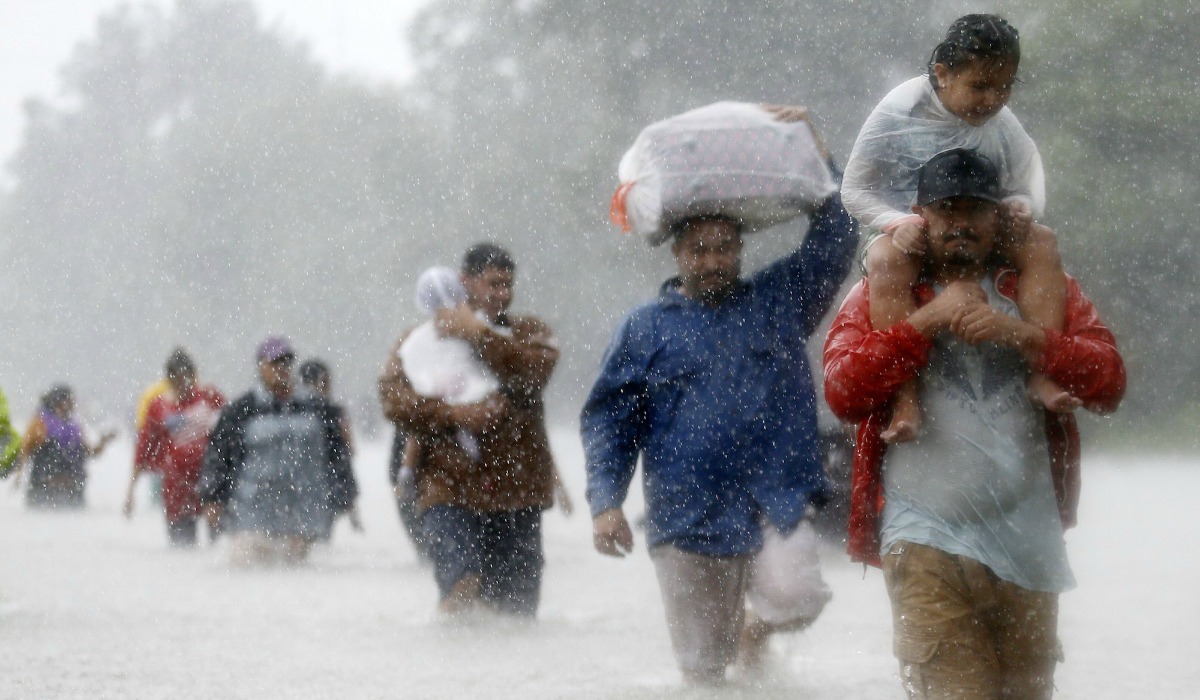Catastrophic Stories: What does it mean to be with Houston? (Part 1 on Story)

This week, Dan focuses on the catastrophic nature of the flooding in Houston. How do people respond when a catastrophe like this invades their lives? How can we respond in a meaningful way to those who are experiencing catastrophe? Dan explores these questions and more as he begins a series of podcast episodes that focus on our response to difficult stories.
To our friends and family in Houston and the greater Houston area, we send our love, our prayers, and our resources. We’ll be with you in the days ahead as you seek to rebuild and heal.
Dan begins this episode telling of his recent obsession with CNN’s updates on Houston. He mentions personal connections with people at Ecclesia church and not being able to get them out of his mind.
The episode will focus on catastrophic stories and the ways that we can engage those stories that are beyond our capacity to understand. Ultimately, how can we bring the goodness of God into these difficult stories?
For those of us who are outside, looking in, we can easily become “24/7ers,” constantly consumed by the latest news around a catastrophe. Eventually, Dan says, we experience “vicarious trauma exhaustion.”
Next, this question is considered: what happens to us when we see catastrophe? On one hand, we want to escape. On the other, we have survivor’s guilt. Eventually, the easiest thing to do is to shut down. Some try to enter into a denial that masquerades as trust. Of course, neither response is helpful for our friends and countrymen.
Many also wonder what it would be like to be in the shoes of those who are suffering.
What if it was me? Would anyone care and offer help? These questions are as archaic as suffering itself.
Dan mentions that the word for catastrophe simply means “upended” or “upheaval.” He says, “We all have a sense that we are not far from some form of catastrophe.”
Experiencing and Responding to Catastrophe
While it’s hard to imagine that people in catastrophic situations have time to ask deeper questions, they do. Many ask, “Where is God? Why, God? How, God? What God?”
When catastrophe hits, you gain a superhuman energy while at the same time feeling that you aren’t going to make it . You are in the middle of profound trauma. Dan addresses the reality that there is no way to fight our way out of trauma. We will pay for it now or later, and it’s almost always much worse if we delay in dealing with it.
When you experience catastrophe, you need to put your own oxygen mask on first in order to help others. You need to find people outside yourself for grounding. You need to ask for help, and every American should consider how to respond in some way in cases like Houston.
So how do we respond in a meaningful way?
People experiencing trauma because of catastrophe need a sense of normalcy around them. They need others with whom they are able to laugh. They also need to be able to metabolize what they have experienced with others who can refrain from offering advice or pity.
Dan explains what actually happens to us when we experience trauma
- Portions of our brain shuts down, and language and decision-making are impaired (we need to be reminded to care for ourselves, even in simple ways)
- We experience some level of numbness (we need to be encouraged to acknowledge and honor the reality of what has happened)
- We are more prone to obsessions and addictions (we need to know that others are surrounding us)
Dan shares that he will be continuing with this theme in coming episodes—further exploring how we deal with really hard stories.
The episode ends with a few personal words to Houston. We at The Allender Center are thinking of those of you who we know, but also Houston as a whole. We are experiencing a national mourning, and we want to be with you through this and help you keep your love of life and of God and of one another alive.
